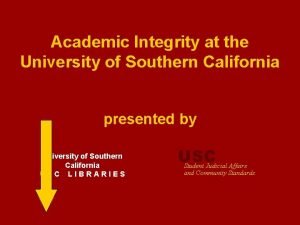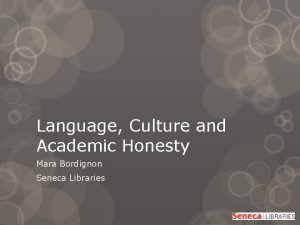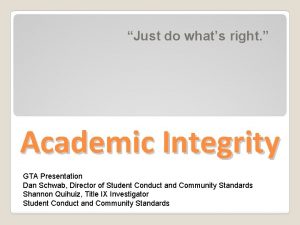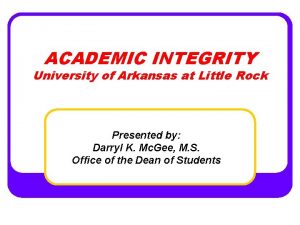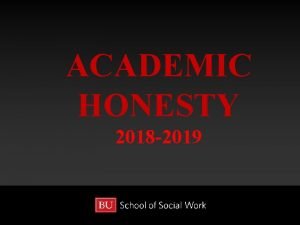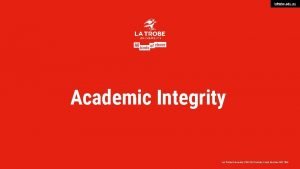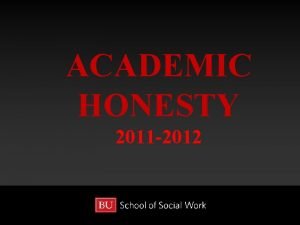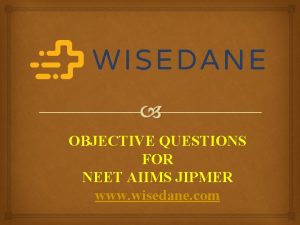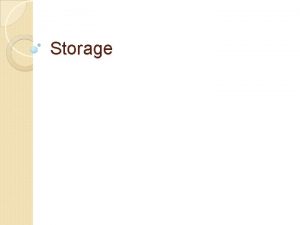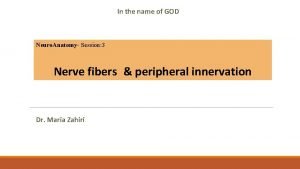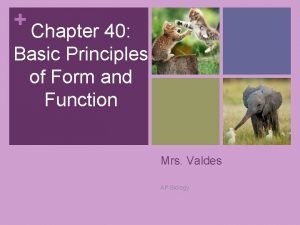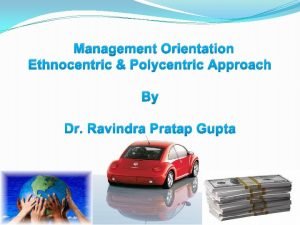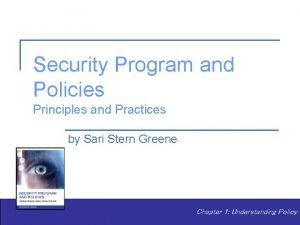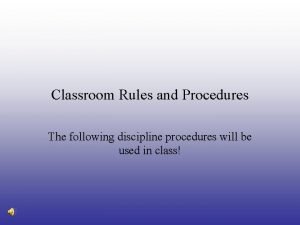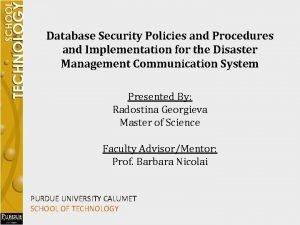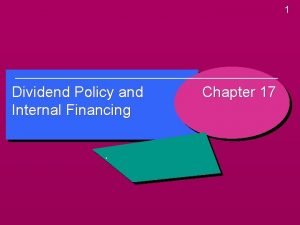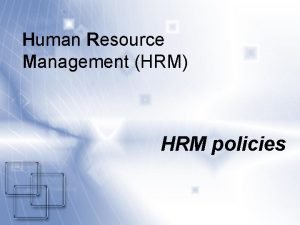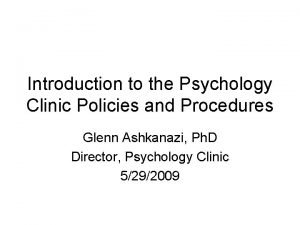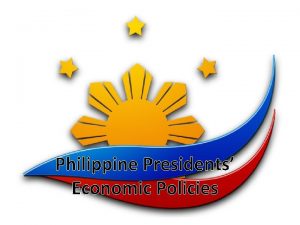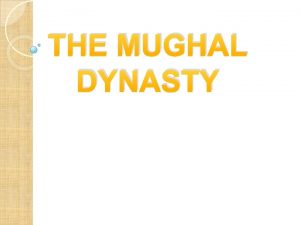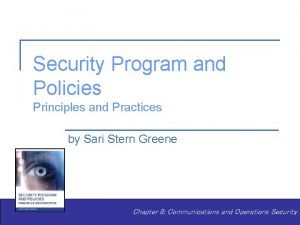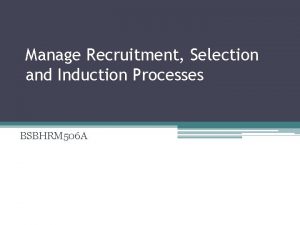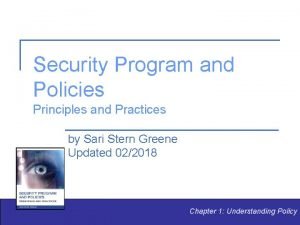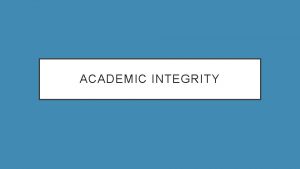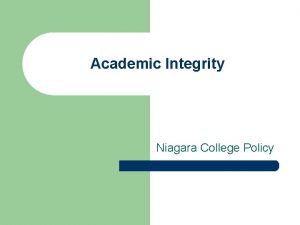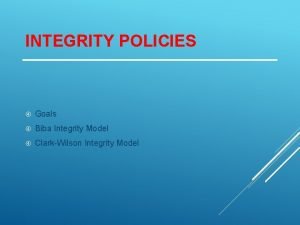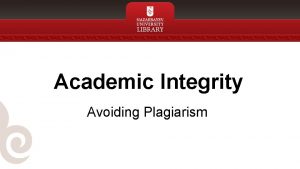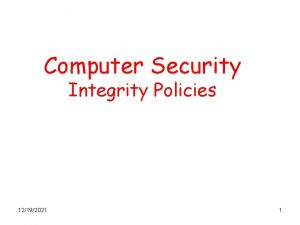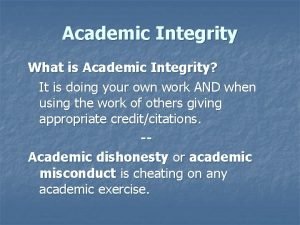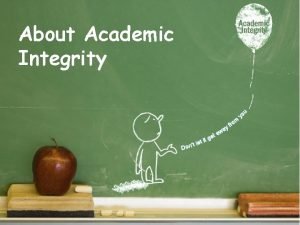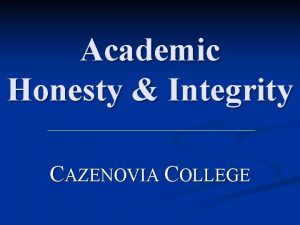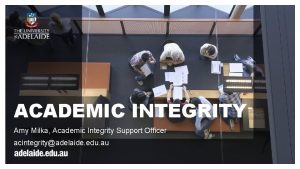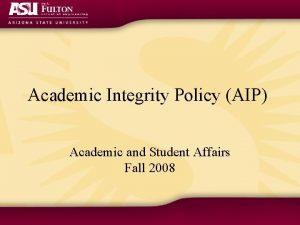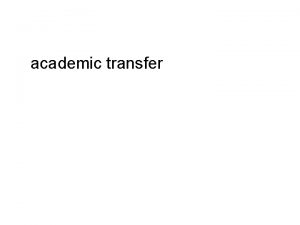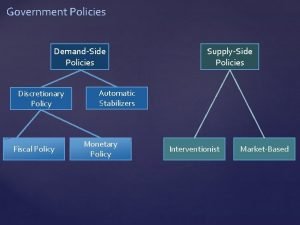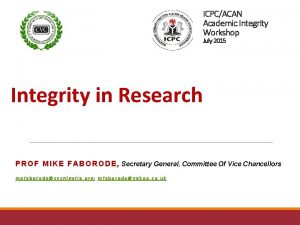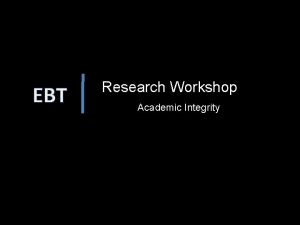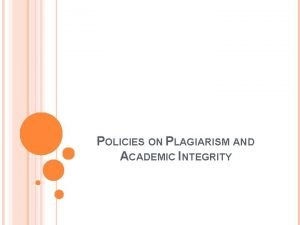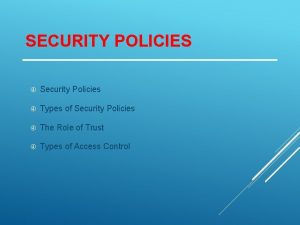Orientation on DISCS Policies DISCS Academic Integrity Policy
































- Slides: 32

Orientation on DISCS Policies

DISCS Academic Integrity Policy

Academic Integrity ► Students are expected to exert all efforts to avoid any violations to academic integrity. ► Academic dishonesty includes (not limited to) misrepresenting facts, fabricating data or results, representing another's work or knowledge as one's own, disrupting or destroying the work of others, and abetting anyone who engages in such practices.

Examples: Academic Dishonesty ► Copying language, structure, ideas, thoughts of another and passing it as your own – plagiarism ► Sources explicitly provided for the course is allowed, but the textbook author's words, ideas, algorithms must be properly cited ► Using another person's solutions and programs (whether from another student or by a teacher) from previous terms – cheating

Examples: Academic Dishonesty ► Basing solutions and programs on solutions used in previous terms (whether from another student or by a teacher) – cheating ► Students may use programs they wrote themselves in the past and programs, utilities, and libraries, provided or authorized by the instructor. Use of programs outside of those authorized by the instructor in preparing an assignment – cheating

Examples: Academic Dishonesty ► Obtaining solutions to assignments commercially (tutor, buying online, etc) – cheating ► Giving or receiving any unauthorized aid, assistance, unfair advantage on any academic work – cheating ► Those providing unauthorized assistance are as guilty as those receiving it.

Examples: Academic Dishonesty ► On written work : copying or quoting words and ideas and passing them off as your own, without proper citation – plagiarism ► All sources must be duly acknowledged, inclusive of the smallest detail.

Carelessness ► While not intentionally deceptive, some careless acts have the same outcome, and may be treated as academic dishonesty. ► Leaving your code in the lab workstations ► Leaving your account open, giving another person the opportunity to use your account ► Allowing someone else to use your username and password ► Leaving work open for others to copy

Carelessness ► DISCS recognizes that in certain situations, you may not be aware that you might be committing academic dishonesty because of the collaboration and use of external sources on certain assignments. ► Unless otherwise specified, DISCS requires all work to be the result of individual effort, completed without the help of others or outside sources.

Carelessness ► To minimize the risk of committing academic dishonesty: ► Students should not work together on assignments ► Students should not consult with one another. ► Students should not debug each other's code, tell each other how to get around problems, or provide each other with code fragments ► unless otherwise explicitly stated

When in doubt… ► Ask your instructor before engaging in collaborative activities, using external materials, or accepting help from others, if you are unsure about what is permitted for a given assignment. ► It is the student's responsibility to determine what constitutes academic dishonesty in a particular course.

Assessing Academic Dishonesty ► Since intellectual substance can be contained in very few words, math symbols, or lines of code, academic dishonesty is assessed on the basis of substance, not on the basis of quantity of material copied.

Certificate of Authorship (Co. A) ► Every program/report/project/paper submitted in each course must be accompanied by a properly accomplished Certificate of Authorship. ► The Co. A states that the work has been prepared by the student and all external sources have been cited. ► There is also a Co. A for group work.

Certificate of Authorship (Co. A) ► Each faculty member may implement their own set of penalties for failure to include a Certificate of Authorship with an assignment submission. ► See template forms (downloadable from the DISCS website and each Moodle course site)

Source Code Certification in Code Comments I have not discussed the <programming language used> language code in my program with anyone other than my instructor or the teaching assistants assigned to this course. I have not used <programming language used> language code obtained from another student, or any other unauthorized source, either modified or unmodified. If any <programming language used> language code or documentation used in my program was obtained from another source, such as a text book or course notes, that has been clearly noted with a proper citation in the comments of my program.

Guidelines for Cases ► The teacher must show the accused student evidence and give the student a chance to respond. ► If the teacher determines that academic dishonesty has occurred, the teacher will determine the penalty. ► If the student disagrees with the teacher's decision, he/she may seek reconsideration from the Discipline Committee.

Guidelines for Cases ► Penalties can include (not limited to) any of the following: ►A warning, with no grade reduction ► A reduction in grade or a grade of F for the requirement in question ► A reduction in the course grade at the end of the semester ► A grade of F for the entire course ► Penalties are entirely at the discretion of the teacher. The teacher may seek advice from the DISCS Chair.

Guidelines for Cases ► Faculty are strongly encouraged to send a Report of Academic Dishonesty, including cases for which no penalty is assessed, to both the Chair and the Discipline Committee. ► The Discipline Committee may choose to act independently and impose a penalty deemed fit for the violation.

Academic Integrity Implementation ► Faculty are strongly encouraged to send a Report of Academic Dishonesty, including cases for which no penalty is assessed, to both the Chair and the Discipline Committee. ► The Discipline Committee may choose to act independently and impose a penalty deemed fit for the violation.

Academic Integrity Implementation ► The Academic Integrity Policy is available on the DISCS website. Each syllabus and course website references the Academic Integrity Policy. ► Instructors who choose to allow or encourage collaboration on any coursework must put in writing and explain the exact nature of collaboration allowed.

DISCS Laboratory Policy

Lab Categories ► Classroom Labs ► Used for regular scheduled classes ► F-204, F-227, F-228, CTC-112, CTC 201 b, CTC 201 c, CTC-214, CTC-215 ► Open Lab : F-206 ► Enables students to complete requirements of DISCS classes ► Consultation/ ► Venue Presentation Room: F-220 for consultations with DISCS faculty

Lab Categories ► Research Labs ► Selective access labs intended for students to pursue research under a thesis adviser or mentor ► F-205, F-223, F-224, CTC-313

General Policies for All Labs ► Students enrolled in any of the programs offered by DISCS are eligible to use DISCS labs. ► Food and drinks are not allowed inside the lab, except for certain approved activities. ► Report computer malfunctions immediately to the any of the lab officers in F-225, CTC 214, and CTC-112.

General Policies for All Labs ► Playing games is forbidden, except in the context of academic work. ► Transferring workstations is discouraged, unless necessary. ► DISCS faculty and staff are authorized to request students to leave the lab if the students are no longer using the lab facilities for academic purposes.

General Policies for All Labs ► Prohibited limited to: actions include, but are not ► Installation of pirated software and hacking software ► Willful infection of computers with malware, viruses, spyware, trojans, etc. ► Any willful malicious act to render damage to equipment or inflict harm or offense to others

Policies for Classroom Labs ► Use of classroom labs outside of the predetermined class schedules must be requested via reservation at the Technicians' Office in F-225. ► Only student organizations under the guidance of DISCS faculty moderators may apply for reservations, subject to approval.

Policies for the Open Lab ► The Open Lab is intended to enable DISCS students to work on requirements of DISCS classes. ► Students may bring their own laptops or use the available desktops. ► The overall conduct in the open lab must be conducive to productive individual work.

Policies for the Open Lab ► Upon entry, students must sign-in and surrender their IDs to the lab officer. ► Upon exit, students should sign-out and retrieve their IDs. ► Schedule changes every term. Open hours of the lab is updated and posted at the entrance at the start of each term.

Policies for Research Labs ► Use of a research lab must be authorized by the faculty adviser of that lab. ► Students may use the lab in the absence of the adviser, with the adviser's consent. ► Each research lab may implement their own method of tracking the hours that students spend in the lab. ► Borrowing of equipment is only allowed with the adviser's consent.

Printing Policies ► Printing is available for regular students at F- 206. ► Each student has free printing privileges depending on the number of DISCS subjects you are enrolled in. Present your Tuition Receipt to the Lab Officer to avail of the privilege. ► Only printing of school-related documents, regardless of subject or organization is allowed, as long as the student is enrolled in any CS or MIS course.

Printing Rates ► Printing rates apply to pages that exceeded your printing privilege: ► Php 5 : black and white, text only ► Php 8 -15 : black and white, slides with graphics, depending on the volume ► Php 15 – colored, text only ► Php 25 – colored slides ► Php 45 – colored graphics/photos
 Academic integrity usc
Academic integrity usc Seneca download microsoft office
Seneca download microsoft office Whats academic integrity
Whats academic integrity University of arkansas academic integrity
University of arkansas academic integrity 5 pillars of academic integrity
5 pillars of academic integrity Six fundamental values of academic integrity
Six fundamental values of academic integrity Tcnj academic integrity
Tcnj academic integrity Studiosity latrobe
Studiosity latrobe Five fundamental values of academic integrity
Five fundamental values of academic integrity Five rods
Five rods A computer keeps data, instructions, and information on ...
A computer keeps data, instructions, and information on ... Christoph klingspor
Christoph klingspor Transneuronal degeneration
Transneuronal degeneration Intercalated discs
Intercalated discs 3m trizact diamond hx discs
3m trizact diamond hx discs A bag contains 30 discs 10 are red and 20 are blue
A bag contains 30 discs 10 are red and 20 are blue Mobile phase membrane discs
Mobile phase membrane discs Imaginal discs drosophila
Imaginal discs drosophila Ethnocentric polycentric
Ethnocentric polycentric Academic honor policy fsu
Academic honor policy fsu Security program and policies principles and practices
Security program and policies principles and practices Classroom policies and procedures
Classroom policies and procedures Database security policy
Database security policy Compensatory education policies
Compensatory education policies Constant dividend policy
Constant dividend policy Hr policies
Hr policies Ideal clinic policies
Ideal clinic policies Ferdinand marcos contribution economy
Ferdinand marcos contribution economy Who was babur
Who was babur Security program and policies principles and practices
Security program and policies principles and practices Recruitment and induction process
Recruitment and induction process Security program and policies principles and practices
Security program and policies principles and practices General principles of congestion control
General principles of congestion control
